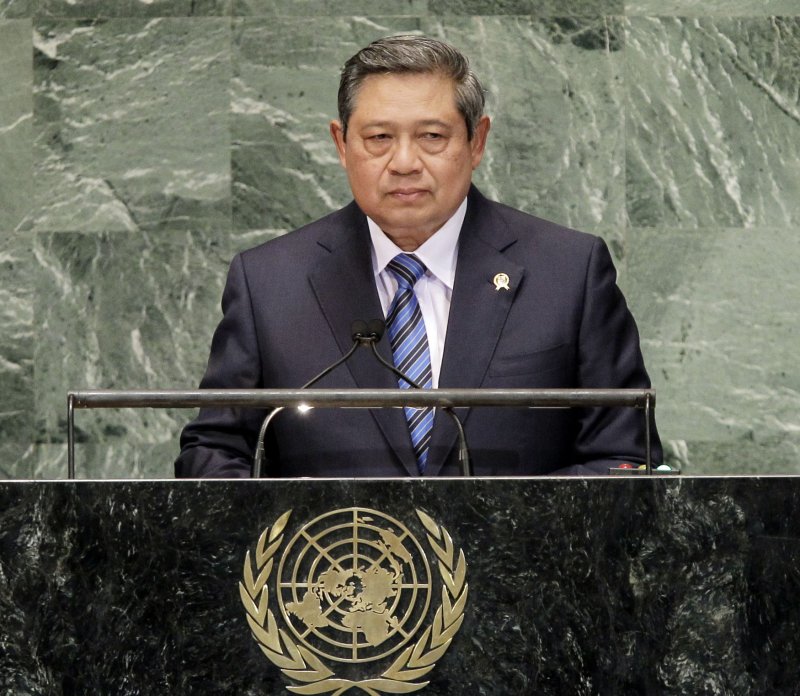Indonesian President Susilo Bambang Yudhoyono on Sept. 25, 2012. UPI/John Angelillo |
License Photo
CANBERRA, Australia, Nov. 18 (UPI) -- Indonesia recalled its envoy and is reviewing its agreements with Australia after leaked material indicated Australia tried to spy on the Indonesian president.
Documents obtained by the Australian Broadcasting Corp. and The Guardian-Australia indicate Australian intelligence attempted to listen in on President Susilo Bambang Yudhoyono's phone conversations at least once, as well as targeted the phone conversations of his wife, Ani Yudhoyono, and inner circle, ABC reported Monday.
Intelligence officials also tracked activity on Yudhoyono's cellphone for 15 days in August 2009, documents indicated.
Indonesian Foreign Minister Marty Natalegawa called the reported actions unacceptable and accused Australia of violating privacy and human rights.
Indonesia also said it would review the status of some Australian officials in Jakarta, ABC said.
"This is an unfriendly, unbecoming act between strategic partners," Natalegawa said in the Indonesian capital. "In short, it has not been a good day in the Indonesia-Australia relationship."
Natalegawa said he recalled the Indonesian ambassador in Canberra.
"It's impossible for an ambassador in foreign country to do their duty in the midst of an unfortunate situation like this," he said. "The summoning of the ambassador is not considered a light step, but it's a minimum step we can do to consolidate situation, and to show our firm but measured act."
He also responded to Prime Minister Tony Abbott's statement to Parliament that all governments gather intelligence on each other.
"I've got news for you," Natalegawa said. "We don't do it."
Indonesian officials also are reviewing all agreements with Australia and demanded Australia provide an "official and public explanation" and "commit not to repeat such actions," ABC said.
The top-secret documents are from Australia's electronic intelligence agency, the Defense Signals Directorate, now the Australian Signals Directorate, ABC said. Targets included vice presidents, the foreign affairs spokesman, the security minister and the information minister.
Asked about the reports, Abbott declined to discuss specifics.
"The Australian government never comments on specific intelligence matters. This has been the long tradition of governments of both political persuasions and I don't intend to change that today," he said. "I should also say that the Australian government uses all the resources at its disposal, including information to help our friends and our allies, not to harm them."















